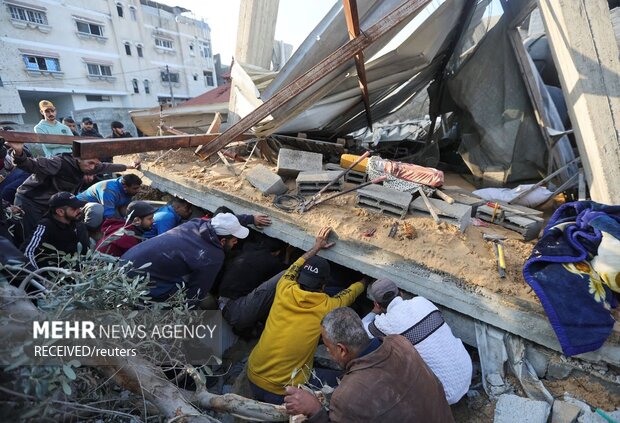Israeli Regime Intensifies Attacks on Gaza City

The United nations Office for the Coordination of Humanitarian Affairs (OCHA) has confirmed that Gaza City experienced a wave of intense airstrikes over the past week. According to OCHA, Israeli bombardments targeted even refugee tents, residential homes, and public infrastructure, causing significant casualties.
OCHA’s latest report states that ground operations, bombings, and repeated evacuation orders have produced new waves of displacement from Gaza City. furthermore, widespread disruptions to communication networks across northern Gaza have hampered efforts to verify data and assess the situation of civilians remaining in the area.
The UN Office of the High Commissioner for Human Rights reported that at least 2,340 people-mostly youths and adolescents-have been killed as late May while seeking humanitarian aid.
OCHA also highlighted a severe logistical crisis. With the Zikim crossing in northern Gaza closed since September 12, imports suspended at Jordan’s border crossings, and all crossings shut on september 23-24 due to Jewish holidays, there is no reliable prediction for aid delivery channels into Gaza-particularly critical as Gaza City approaches famine conditions.
The agency warned that ongoing bombardments, forced evacuations, and acute shortages of essential supplies severely threaten vital services such as ambulance support, medical centers, nutrition programs, and community kitchens. Since early September four hospitals in northern Gaza have closed; currently only fourteen hospitals remain operational across Gaza Strip-and none are functioning at full capacity.
The report cautions that repeated displacements impose extreme hardship on vulnerable groups-especially children and elderly-and place them at heightened risk of death from dehydration.
Humanitarian organizations working on shelter describe conditions in southern Gaza as dire. Families are living in temporary tents along the coastlines amid overcrowded schools or amidst rubble from destroyed homes. Many displaced individuals arrive without tents; meanwhile tent prices on the black market have surged to around $1,000 each-well beyond most families’ means.


